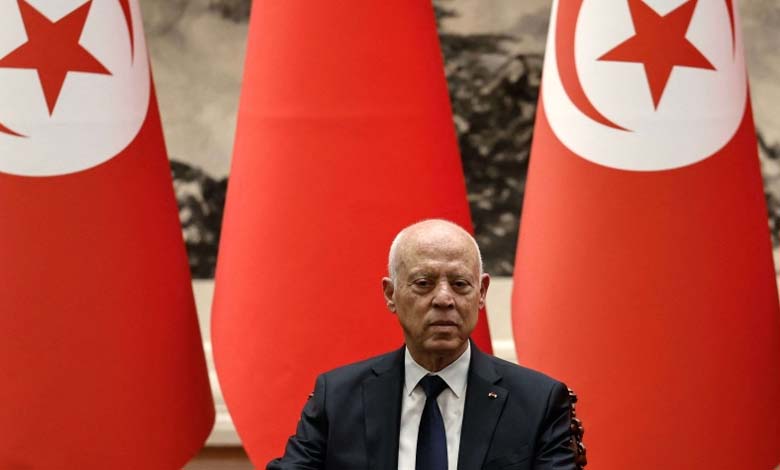Saied warns of foreign funding and interference in presidential elections
The Tunisian president's call for vigilance comes amid a dispute between the electoral commission and the administrative court over the list of candidates for the presidential election.

Tunisian President Kais Saied discussed the general security situation in the country with Khaled Nouri, the Minister of Interior, and Sofiane Belsadek, Minister of State for Security Affairs, stressing the need for vigilance, attention, and anticipation to thwart any attempts to undermine the state’s security and that of the citizens, especially given increasing evidence of links between certain circles and foreign entities.
-
Tunisia’s Muslim Brotherhood and the Elections: Presidential Messages Expose Efforts to Gain Foreign Support
-
In the Presidential Elections… Tunisia Crushes the Hopes of the Muslim Brotherhood
This meeting took place as the presidential election approaches, along with a heated debate between the electoral commission and the administrative judiciary over a court ruling ordering the reinstatement of three candidates excluded from the presidential election scheduled for October 6.
The Tunisian president emphasized that “the elections are a purely internal affair in which no foreign entity has any say, and that those who receive funds and support, as they have often done from foreign entities, falsely and deceitfully claim to be advocates of freedom and democracy. They have embraced betrayal, subservience, and slander, and are valued at no more than a single penny by those who fund them.”
-
Tunisian Brotherhood: Conspiracies to “Reposition” Before Presidential Elections
-
Suspected of plotting against the state’s security… Who is the Tunisian Muslim Brotherhood candidate for the presidential elections?
He stressed that the Tunisian people are fully aware of the situation and have chosen to cleanse their country and carve out a new path in history, where sovereignty belongs exclusively to the people.
This is not the first time that Kais Saied has called for vigilance, but it coincides with the ongoing dispute between the electoral commission and the administrative court.
The administrative court reinstated three presidential candidates after their exclusion: Mondher Znaidi, Imed Daimi, and Abdelatif Mekki. However, the electoral commission insisted on maintaining the final list of candidates, which includes the incumbent president Kais Saied, Ayachi Zammel, and Zouheir Maghzaoui, in the absence of a constitutional court, which was mandated by the 2014 Constitution but has yet to be established.
-
Tunisia: Mekki’s Return to the Presidential Race Revives Muslim Brotherhood Hopes Despite Their Diminished Popularity
-
Muslim Brotherhood Practices: Spread of Fake Accounts in Tunisia to Influence Elections
The court rejected the commission’s arguments regarding the deadlines for notifying the judgment, affirming that it had adhered to the legal procedures.
The electoral commission, for its part, vowed to turn to civil courts to confront certain candidates accused of forging endorsements.
On Wednesday, the commission issued a statement saying it had referred the file of one rejected presidential candidate for the 2024 elections to the public prosecutor’s office in Tunis for fraud and false testimony. It accused the candidate of deliberately signing a false statement under oath and concealing his foreign nationality, which constitutes a constitutional and legal impediment to running for the presidency.
-
Close to the Brotherhood: Tunisian Politician Safi Said Arrested While Attempting to Cross the Border
-
The Tunisian Muslim Brotherhood Casts Doubt on Election Results Ahead of Time, and the Electoral Commission Responds… Details
Candidates are required to gather ten endorsements from members of the Assembly of the People’s Representatives (the first chamber of parliament), or an equivalent number from the Chamber of Regions and Districts (the second chamber), or 40 endorsements from local, regional, or municipal council leaders, or 10,000 signatures across 10 electoral districts, with at least 500 voters in each district.
Furthermore, anyone with dual citizenship or without a clear criminal record, known as the number 3 certificate, is ineligible for candidacy.












